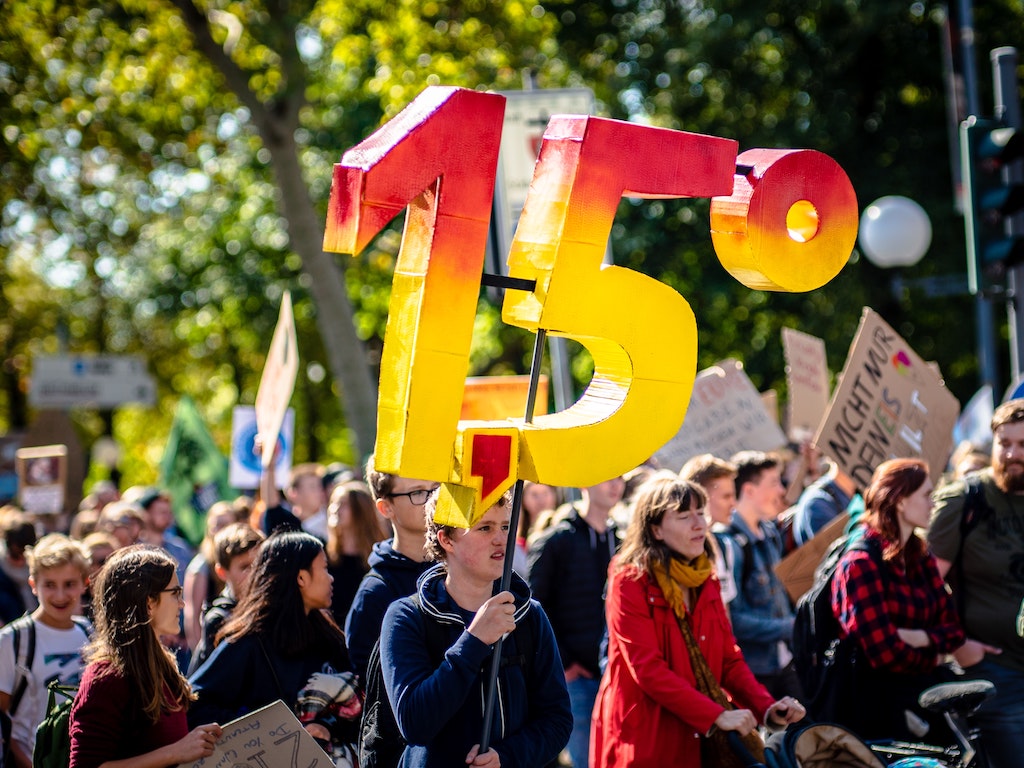4 Mins Read
The oil and gas industry uses universities to influence environmental policy. Here’s how we fight back.
By Ilana Cohen and Jake Lowe
As student organizers, we’ve seen the power of divestment come to bear by helping secure historic commitments from our universities—including the world’s richest school, Harvard—to sever their endowments from the companies driving climate breakdown.
Yet at the same time that our universities have taken a crucial step toward climate leadership, they continue to engage in repugnant hypocrisy that undermines such progress: raking in fossil fuel funds for the critical climate-change-related research on which our futures depend. To end our universities’ sponsorship of a deadly core business model once and for all, we need a new strategy to expose and dismantle these toxic ties by calling for fossil-free climate research.
First, this is a call to cease our universities’ role in industry greenwashing, allowing oil and gas majors to stamp their name brands on credible-seeming university research around an energy transition. Second, it’s a call to protect such research’s integrity, given established patterns of vested corporate interests’ leading to skewed research outcomes. Third and perhaps most critically, it’s a call to stop the fossil fuel industry from co-opting the policy-making process and precluding the urgently needed just transition to renewable energy.
Higher education plays a key role in translating the political ambitions of the fossil fuel industry into ostensibly objective economic expertise used to inform public policy. Fossil fuel companies and the network of right-wing organizations funding their concerted climate denial and delay campaigns, referred to by sociologist Robert Brulle as the Climate Change Counter-Movement, affiliate themselves with university research that shapes public thought around an energy transition to bolster their lobbying in support of weak climate policy that preserves their profits.
The George Washington University Regulatory Studies Center provides one such example. Equipped with millions of dollars from the likes of ExxonMobil and the Charles Koch Foundation, the RSC crafts economic arguments that deflate the negative economic impacts of fossil fuel emissions. These arguments are published in journal articles and submitted as public comments to regulatory agencies. Invoking the credibility of the GW name, then, RSC research cites industry-funded statisticians, established climate deniers, and allied economic consultants. In 2018, the Environmental Protection Agency cited the work of RSC affiliates in its decision to substantially reduce the figure used to quantify the social harms of carbon emissions in environmental regulations.
The RSC is only the tip of the iceberg. A variety of additional centers, including the MIT Energy Initiative, the Oxford Institute for Energy Studies, and the Harvard Kennedy School Belfer Center, are also heavily influenced by fossil fuel money and interests.
That’s why we’ve been organizing across campuses and continents to start decoupling university climate research from fossil fuel industry malfeasance. Most recently, student coordinators of the Fossil Free Research campaign launched a public letter featuring more than 500 signatures from leading academics, climate experts, and university members primarily from the US and the UK calling for their universities to lead the way in championing fossil-free climate research. Meanwhile, Sunrise GW has gathered over 1,000 signatures from members of the GW community for fossil-free climate research, secured pledges from 50 faculty to reject fossil fuel research money, and is pushing university centers and institutes to adopt the same pledge. Organizations from Fossil Fuel Divest Harvard to the Oxford and Cambridge Climate Justice campaigns have published reports documenting the extent of the fossil fuel industry’s infiltration of academic research, and Extinction Rebellion Cambridge has taken direct action to call out the university’s cozy relationship with oilfield services giant Schlumberger.
For any campaigns or individuals looking to take up this cause, there are a few clear first steps. First, find colleagues and community members ready to work together to hold your institution accountable. Second, do your research: Start with publicly available resources such as university tax filings, research websites and publications, and fossil fuel companies’ giving reports to identify and expose fossil fuel research ties. Third, set your tactics to move your university to action. The Fossil Free Research letter—which is now open for new signatures—provides a useful platform for these efforts by identifying faculty supporters and providing a clear message to take to your administration.
And remember, this isn’t a campaign only for campuses to take up. Many research foundations, think tanks, and academic publications, too, choose to conduct or publish fossil fuel-funded climate change research. Their rejection of such money and research could prove immensely powerful.
With divestment gains far and wide, we must channel the momentum around institutional climate accountability to ensure that our universities no longer serve as tools for suppressing the climate policy needed to ensure a livable future. By standing together as an international coalition of students, faculty, alumni, and more devoted to this common cause, we cannot fail.
lana Cohen is a Harvard student and has helped spearhead the fossil fuel divestment campaign on Harvard’s campus.
Jake Lowe is a junior at George Washington University and a student organizer with UnKoch My Campus.
This story was originally published in The Nation and is republished here as part of Covering Climate Now, a global journalism collaboration strengthening coverage of the climate story.
Lead image by Mika Baumeister on Unsplash.




